Why Cheapest is Worst
Questions And Answers by Dr. Chynn
The following is a compilation of Dr. Chynn’s answers and excerpts of interviews that Dr. Chynn had with the NY Times, Wall Street Journal, Time Magazine online, The International Herald Tribune, The Guardian of London, The New York Post, the Daily News, and USA Today:
- What if someone can’t afford to go to the best center? What should they do then?
We offer patient financing, where you only have to pay $1/day for every $1000 you finance. So let’s say the cost difference between my center (which is the most expensive center in NY, NJ, CT or PA, I’m proud to say, because we cut no corners) and the cheapest center is $2,000. You’d only have to pay $2/day or $60/month to afford the best surgeon, the best technology, and the safest non-cutting procedure. That’s less than your cable bill – and you can’t afford it?
We’re the only center in NY which uses a full eye MD surgeon, not an OD or “tech” to assist me in the OR, so you have 2 sets of eyes on everything (and another surgeon in the OR if, for example, I have a heart attack during your surgery). We’re the only center that lets people speak to happy patients with their same Rx or profession preop. We’re the only center that lets people watch live surgery, or have a companion in the OR during their procedure to hold their hand – we can only do this because I stopped cutting flaps, so you won’t see a flap complication in the OR. We’re the only center in NY that offers dissociative anesthetic and/or nitrous oxide if you’re nervous, for better fixation during surgery – and better vision afterwards. We’re the only center that lets you use WhatsApp to text me, my staff and my other eye MDs 24/7/365, including nights and weekends. All these things are incrementally important to your achieving your Best Final Vision, and all of them cost money – which is why we are the most expensive center.
Fortunately, we’re also the only center in NY, NJ, CT or PA that accepts both vision and regular medical insurance, so if you have good medical insurance, we can match the price of the cheaper LASIK centers, where you’re getting outdated technology and a technique that’s not as safe during or after surgery (which is why Navy SEALs are not allowed to have LASIK, but are allowed to get LASEK – because their flap can’t be torn off by trauma if they never had a flap cut into their eyes. This is not to say that we offer a discount per se if you have good medical insurance, but rather that your insurance will be able to cover part of the total cost of the procedure, meaning you’ll still be receiving high-quality treatment, but for a lesser out-of-pocket amount.
For example, if you have good medical insurance with a low remaining deductible, you will be given three options on the day of your consultation.
A: The first option would simply be to agree to have your consultation billed as an eye exam, which we would approximately get $500 for and subsequently credit towards your procedure. That way, not only would your consultation be free, but you’d be walking out of the office with a $500 credit!
B: If you are more committed, the second option would allow you to save even more. Depositing $500 on the day of your consultation will allow us to get your pre-operative testing started, meaning that we will be able to bill additional eye exams to your insurance and make on average $1000 which we will gladly credit towards your procedure. This means that your $500 will actually be counted as $1500 off the initial price!
C: If you are absolutely certain that you want to get your procedure done here, then the only sensible option would be to pay the full balance on the day of your consultation, which would allow us to complete your entire testing on the day of the consultation, and get approximately $2000 from your insurance. That would basically cover one eye off the total price of the procedure!
-
What experience do you have personally with “discount” LASIK centers, Dr. Chynn?
When I just finished my training at Harvard, for a brief time, like about I year, I worked part-time as a “shooter” for a discount LASIK center in Rhode Island. Like all beginning eye surgeons, I had almost no experience in any type of eye surgery, but I knew that I wanted to specialize in LASIK, so I knew I had to get more surgeries under my belt. The fastest way to do this was to agree to become a “shooter” — it was like a marriage of convenience between me and that center.
-
Why is it called being a “shooter”? That term sounds bad, just on the face of things…
It is a somewhat pejorative term, with negative connotations. It means the eye MD just shows up to do the surgery, and doesn’t examine or even meet the patients before their day of surgery. All the preoperative testing and planning is done by someone else — usually a non-MD, like an OD or optometrist, to save costs (since you’d have to pay a MD about 4x as much as an OD). The eye surgeon just shows up, does a very cursory consent of the patients, then the staff brings them into the OR, pretty much like on an assembly line. It’s really very much like turning patients into objects, and putting them onto a conveyor belt. I’m not proud that I did this.
-
Why is this practicing suboptimal medicine? Isn’t the process automated anyway?
After performing over I ,000 PRKs, 5000 LASIKs, and 25,000 LASEK and epiLASEK’s, I can tell you that the actual surgery does require skill. I would say there’s a learning curve until you do about 1,000 cases. Of course, I thought I was an “expert” after 100 cases. Until I hit some complications that are rare, and had never seen before case 500. It’s really like any skill — would you think Tom Brady would be as good a quarterback after 100 gametime throwing decisions as after 1000? Of course not. And that’s mainly a physical task, not a cerebral one. There’s much more “learning” as a surgeon because the technology evolves every year. The football is identical always (let’s forget “Deflategate” for a moment).
-
Why should the surgeon meet his patients before the day of surgery?
Any great surgeon will tell you that the actual mechanical part of performing surgery is, at most, 33% of his challenge, or what he’s doing to achieve a great outcome. 33% is patient selection and preoperative work, and 33% is postoperative management. There’s a saying among surgeons that the best evidence of a greatsurgeon is the patients he did not operate on. This means that more experienced surgeons learn from their mistakes, and hopefully from the mistakes of others, and avoid surgery on certain patients who are likely to have bad outcomes.
-
What types of patients should not have LASIK? What should these patients do?
If you look at LASIK patient message boards, over 50% of the very unhappy patients suffer from severe, permanent dry eye syndrome, or DES. None of these patients should have had LASIK, if they reported a history of DES before surgery, including needing to use artificial tears daily, or not being able to wear contacts more than a few hours a day. LASIK always makes everyone a bit more dry, since you cut and kill most of the corneal nerves when cutting the LASIK flap, whether with a metal blade or with a laser (IntraLase or the misleading marketing term “bladeless” LASIK). All of these patients should have had a surface ablation, either the older, painful PRK if the surgeon is older, or the more advanced, non-painful LASEK, which avoid cutting the cornea, thereby preserving the corneal nerves and not causing as much dryness.The other largest group of very unhappy LASIK patients are those with bad night vision. Similarly, if they reported bad night vision preop, they never should have had a flap cut into their eyes, because afterwards they will always have a 2-piece cornea, so light will scatter at the flap interface, causing night glare. All of these patients should in retrospect have had the outdated PRK if going to a surgeon who never learned how to do LASEK, or had a LASEK, which don’t create a flap, so don’t exacerbate pre-existing poor night vision. Plus all of them should have had a wavefront ablation (CustomVue or “HD”) to make the night vision better, notworse.
But most patients aren’t properly screened for either condition. And if the patient mentions this to the OD preop, will he really transmit this to the MD who’s supposed to operate on that patient in a few days or weeks? Probably not. Maybe he’ll make a small note in the chart that can be easily missed. And because that patient mentioned it to the OD at the preop, they might then very well not bother mentioning it again to the MD on the day of surgery, because they already said it once before, and thought it was taken into consideration.
-
What about the profit motive of “laser chains?” Do you think they push doctors to do surgery?
I feel very strongly that the cheapest laser “chains” push the OD’s to accept borderline patients, like those with some dry eyes, or night glare, or thin corneas, or irregular corneas. And you have to understand that by the way the discount chains pay the surgeons, they are inherently forcing them to perform an incredible,sometimes unethical amount of surgery per day.
-
What do you mean by that? How do the discount centers pay their eye surgeons?
This is something nobody will admit to, because it sounds inherently bad. And it sounds bad because it is bad. The average discount center is paying the “shooter” about $200 per eye.
-
Excuse me? I thought you said S200 per eye. There must be some mistake in what I heard?
No mistake, $200 per eye that’s it. This means for the surgeon to make the day worth his time, he must perform an inordinate amount of surgery. So unless he or she operates on at least 20 eyeballs per day, it’s really not worth it. To do well financially, he must do much more volume. On my busiest day as a “shooter” I “shot” 57 eyes. That means each “consent” took literally I minute, and each surgery no more than 5 minutes “skin-to-skin.” I didn’t eat lunch that day, only had a few power bars, and remember holding in my urine so I could finish a few more cases before peeing. Soon after that day, I quit. I was making good money, and getting a lot of surgical experience, but patient care was clearly being compromised, and I refused to be part of that.
-
What other “shortcuts” do the cheap, discount laser centers take?
Many do not even dilate patients preop, so they can’t properly assess the retina, optic nerve, or even the prescription, because younger myopes can “accommodate” and you’d think they were something like a -6.00, for example, when on dilation the time Rx would be revealed to be -5.00. Most ODs and MDs also don’t “red/green” test patients when doing the Rx, so again it’s easy to put a number into the laser that’s too high, so the patient would be overcorrected and either get eye strain and need reading glasses years too soon, or need another operation.
I once worked as a “shooter” at the cheapest center in NYC, where they discouraged me from wearing sterile gloves, because they cost Sl per glove, and where they gave patients Advil instead of Valium to “relax” them before surgery, because Advil is like ten cents a pill and Valium Sl/pill, and they said “it’s the placebo effect anyway, and we haven’t noticed any difference since we started giving them Advil instead of the Valium we said we’re giving them.” Needless to say, I quit “shooting” for that center after I day; it was a horrific experience. But patients can’t see “behind the scenes” and used to flock to that center because they were the cheapest, and advertised on the radio a lot. That’s got to be the absolute stupidest way to choose a surgeon to choose the very cheapest one you can find.
What idiots do that? Would you choose the very cheapest heart or kidney or liver or bone or brain surgeon you could find? Of course not. But apparently, your eyes are neither delicate nor crucial, so any moron can operate on them and the worst-trained, cheapest surgeon is the one you’d want. It’s unbelievable!Almost no cheap center accounts for the fact that most myopes keep progressing their myopia until age 30, and don’t intentionally overcorrect younger near sighted patients. Sure, they’ll be 20/20 initially. They’ll also be about -l .00 and 20/60 in a few years. This is why hundreds of thousands of people who have had LASIK think it’s not permanent, and are in glasses again because their cheap surgeon didn’t bother to examine their old prescriptions, draw out a nomogram to extrapolate their myopic progression, and take that into account in the surgical planning. So they saved $1000 or even S2000 over a higher-quality center and now they’re back into glasses.
In the most important things in life, like your health, your education, your safety, and your vision, cheap is stupid and expensive is smart. You should always choose the most expensive thing you can afford, when it’s something important. -
Any final words about choosing the cheapest LASIK center or surgeon?
If a center or surgeon could charge more, they would. You either compete on quality or on price — not both. The more expensive things you’ve chosen in life are higher quality than cheaper alternatives you rejected. Examine the following list of items in your house: your watch, your car, your TV, your favourite sweater, yourfavourite pair of shoes, even something as simple as your favourite pillow, or towel, or dare we say it your favourite brand of toilet tissue.
All were chosen over cheaper alternatives, that you rejected because of inferior quality. Even something you’re going to wipe your ass with, and then flush down the toilet right away, has a price quality inverse metric, where cheaper is lower quality, and higher priced brands must justify that higher price with better quality. But that’s something important and high-tech like toilet tissue, right, not something generic and unimportant like YOUR VISION FOR THE REST OF YOUR LIFE. Don’t be an idiot. Save elsewhere — not on perhaps the most important surgery of your life!


#1 Rated
LASEK, LASIK, PRK, SMILE Eye
Surgery Center in NYC
#1 Rated LASEK, LASIK, PRK, SMILE Eye Surgery Center in NYC
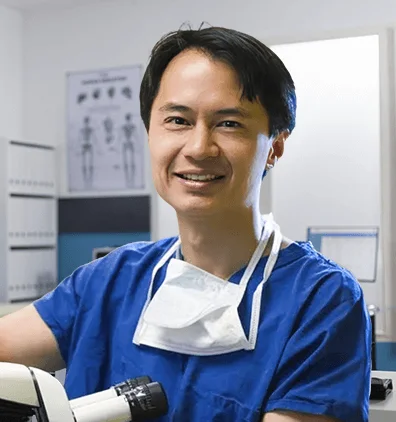

LASEK vs. LASIK
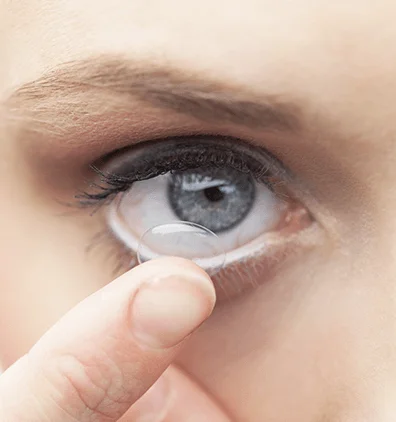

Ortho-K
Work while you sleep
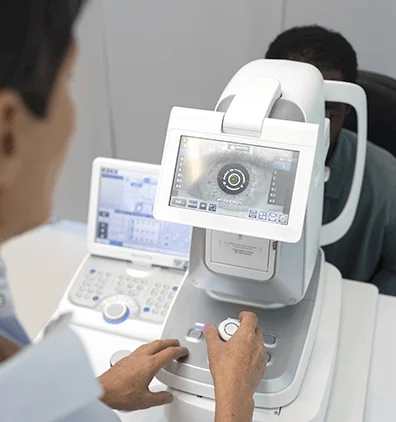

Cross-linking (CXL)
Keratoconus treatment
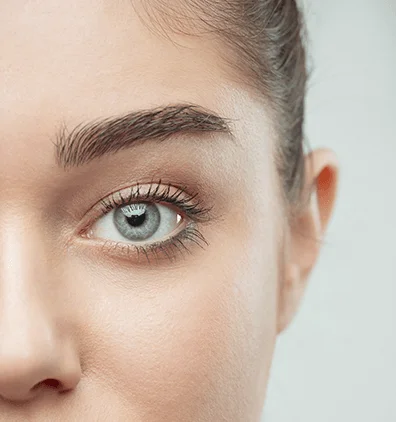

Eye Jewelry
Introducing the newest trend
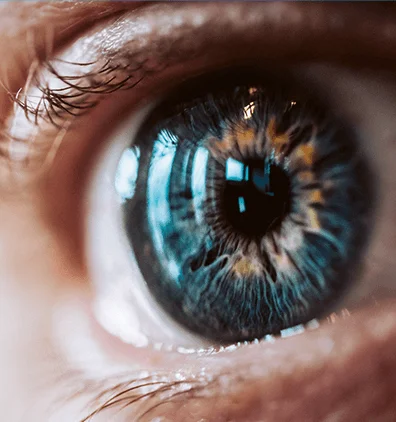

Corneal Tattoo
Ink to match your iris
(212) 741-8628

Get Directions to Park Avenue LASEK
102 E 25th St, New York, NY 10010


